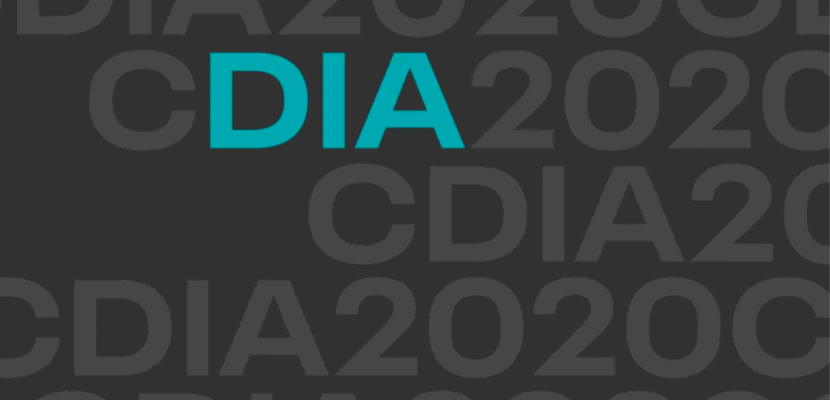After a tumultuous year, the final award category at the Data Impact Awards was a much needed pick me up for everyone in attendance. Showcasing some of the most inspiring and uplifting use cases of Cloudera’s technology, The Data for Good category recognizes organizations that are tackling the challenging issues affecting society and the planet — and we all know there are plenty of them in 2020!
Judge Cornelia Levy-Benchton teed up the award on the night and summed up the category finalists beautifully. “We’ve all heard inspiring stories from the frontline of the pandemic. First responders, healthcare workers, key workers, doctors, and nurses, all going above the call of duty during the pandemic to save lives and give comfort to people in distress. However, there is also a group of heroes right here among us in the corporate ranks. These are heroes, unsung as of yet, who operated behind the scenes during the pandemic, to fight the good fight against COVID-19, and the chaotic situation that ensued.”
She continued, “Cloudera has put a spotlight of praise and recognition on these unsung heroes. They are our corporate technical leaders, our data scientists, our data practitioners, and data administrators, all of whom stepped up to the plate in a time of critical need. They behaved selflessly and tirelessly, and they delivered, with remarkable speed and effectiveness. Providing new services and new solutions that will endure beyond the cap of the pandemic. The ways they have utilized data for good, will be shared by other companies and even across industries.”
With so many incredible use cases, it was a tough category for the judges with much deliberation. The winner was announced as Rush University Medical Center. Let’s see what it was about this submission that stood out and clinched them the win.
The Data for Good winner — Rush University Medical Center
Rush University System for Health is an academic health system with a mission to improve the health of the individuals and diverse communities in Chicago, Illinois, USA. Through the integration of outstanding patient care, education, research, and community partnerships. The Rush healthcare system includes Rush University Medical Center, Rush University, Rush Copley Medical Center and Rush Oak Park Hospital, as well as numerous outpatient care facilities.
Rush University Medical Center, the leader of the project and flagship location for the larger
Rush University System for Health, is an 830,000 square foot academic medical facility on Chicago’s Near West Side with a patient capacity of 664, including adult and pediatric patients. From the frontline of the pandemic, as it swept through Chicago, Rush University Medical Center came up with an incredible way to utilize its data, in order to save lives during the crisis.
Using data to save lives during the pandemic
Reliant on electronic health records (EHRs), Rush Medical University Center’s doctors and physicians found that, due to the time it took developers to script and analyze patient records, they weren’t able to make fast COVID-19 diagnoses. Struggling with a lack of data and insights, they found themselves at a disadvantage in preventing the spread of the pandemic. Unable to get information from medical source notes quickly and efficiently could lead to misdiagnosis and slower care during critical windows, at the cost of lives. With it taking up to three days to process data, Rush developers were inhibited from supporting medical staff in the way they both wanted and needed to. They knew they needed a solution that could match the speed and ferocity of the pandemic.
The Data Science & Knowledge Management team acted fast to fix this problem, building a data ingest pipeline with Cloudera DataFlow (CDF) in less than 2 weeks. Using CDF, custom NiFi flows were developed to automate the ingestion of COVID-19 data. This meant that instead of analyzing historical data from the last week, or even month, developers were able to analyze data on a real-time basis and get near-instant feedback. Thanks to this project, and how quickly it was put into production, Rush was able to build a Coronavirus dashboard, early on, even while clinicians were still trying to figure out what exactly COVID-19 was.
The dashboard displays analytics in real-time, providing an up-to-date and accurate view, and the insights gleaned from this project allowed early recognition of COVID-19 symptoms. This feedback has allowed clinicians and physicians to treat patients quickly and effectively, ultimately saving lives.
Forecasting the future to improve outcomes
With the dashboard, and Cloudera technology in place, Rush researchers developed real-time tracking of regional Influenza-like illness (ILI), using EHR data, to provide surveillance of the symptoms consistent with COVID-19. This data feeds a forecasting model that Rush (and others) are using to better estimate regional COVID-19 case volumes. It was found that the anticipated case rates forecasted by this model accurately reflected the case spikes across Chicago. The model updates with regional case counts and can estimate specific supply estimates and personnel needs, which can help health care organizations of all kinds understand where potential shortages of critical supplies could emerge. Without quick and easy access to structured information about its patients, Rush would be forced to rely on COVID-19 testing alone to diagnose patients, which can take days to produce results. With CDF, clinicians have all the data they need within minutes.
Talk about using data for good, as you read this blog, this is literally saving lives. It’s been a privilege for Cloudera to play a part in what Rush University Medical Center is achieving. If you are currently working on a project battling the challenges of 2020 and think your company deserves recognition, we’d love to hear from you. This year’s nominations inspired us all and we are truly excited about the incredible work we know is going on out there, to tackle the biggest challenges the world is facing. From using data to battle climate change, through to the breakthroughs we know are happening in the fight against COVID-19, we look forward to hearing more about the incredible ways you are using Data for Good.
To learn more about the Data Impact Awards, our judging panel, and winners please visit: https://www.cloudera.com/about/customers/data-impact-awards.html



